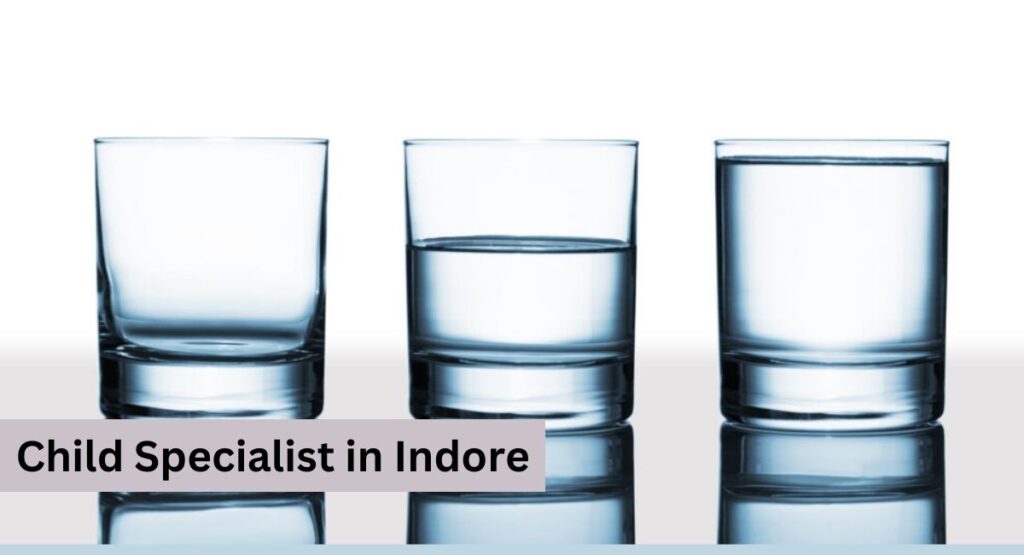Water is the elixir of life, and its importance cannot be overstated. It is especially crucial for children, as their bodies are still growing and developing. As a responsible parent, you must ensure that your child is getting the right amount of water to stay healthy and hydrated. In this blog, we will explore the essential guidelines for determining how much water your child needs, with insights from a renowned Child Specialist Indore, Dr. Sanjay Jain.
The Significance of Hydration for Children
Water is essential for various bodily functions, especially in growing children. It aids in digestion, helps regulate body temperature, supports nutrient absorption, and flushes out toxins from the body. Proper hydration is also crucial for the healthy development of a child’s brain, muscles, and overall well-being. If you’re in Indore and have any concerns about your child’s health, consider consulting a Best Paediatrician in Indore to ensure they are on the right track to optimal growth and development.
Without adequate water intake, children can become dehydrated, leading to a range of health issues. Dehydration can cause fatigue, irritability, headaches, and even impact a child’s cognitive and physical performance. Thus, it’s imperative to understand your child’s hydration needs.

How Much Water Does Your Child Need?
The ideal amount of water your child needs can vary depending on factors such as age, activity level, climate, and overall health. To ensure your child is well-hydrated, consider these general guidelines:
• Infants: Babies under 6 months old typically get their required hydration from breast milk or formula. On-demand feeding is usually sufficient to meet their hydration needs.
•Children aged 6 months to 1 year: Introduce small sips of water in addition to breast milk or formula, especially in hot weather.
•Children aged 1-3 years: Aim for about 4-5 cups (32-40 ounces) of water a day, in addition to milk or other beverages.
•Children aged 4-8 years: Around 5-7 cups (40-56 ounces) of water daily, alongside other fluids.
•Children aged 9-13 years: Approximately 7-8 cups (56-64 ounces) of water daily.
These are general recommendations given by Dr. Sanjay Jain. If your child is more active or lives in a hot and humid climate, they may require more water. Consult with a Child Specialist in Indore to get personalized advice based on your child’s specific circumstances.
Recognizing Dehydration in Children
Recognizing signs of dehydration in children is crucial for maintaining their health. Common signs of dehydration include:
•Dry mouth and lips
•Dark yellow urine or reduced frequency of urination
•Sunken eyes
•Fatigue
•Irritability
•Dizziness or fainting
If you notice any of these signs, it’s essential to increase your child’s fluid intake and seek medical advice if the symptoms persist.

Child Specialist Indore-Explore imaginative ways to ensure your child stays well-hydrated!
1. Opt for water-rich foods throughout the day, including cucumbers, watermelon, strawberries, tomatoes, and zucchini. These choices not only hydrate but also provide essential vitamins and nutrients.
2. Invest in miniature water bottles (4 or 8 ounces) that are easy for children to hold and sip from. Teach them how to fill their cups from the faucet or use the fridge’s water dispenser.
3. Elevate the taste of your water by incorporating refreshing fruits like cucumbers, lemons, and limes. Whether you’re a Child Specialist Indore or just looking for a way to make your water more enjoyable, this simple trick can turn ordinary hydration into a delightful experience.
4. Opt for water over sugary beverages. Replacing one 20-ounce sugar-sweetened soda with water can save your child (or yourself) approximately 240 calories. Sugar-sweetened beverages include fruit drinks, sports drinks like Gatorade and Powerade, and non-diet soda.
5. Swap traditional ice cubes for frozen fruit or explore playful, reusable straws as an alternative.
Conclusion
Water is a fundamental necessity for children’s health and well-being. As parents, we must ensure that our children are adequately hydrated to support their growth and development. The recommendations for daily water intake may vary depending on several factors, but staying aware of your child’s individual needs and recognizing signs of dehydration is crucial. For personalized advice and guidance, consult with a child specialist Indore who can provide the best recommendations tailored to your child’s unique circumstances. Remember that a well-hydrated child is a healthy and happy child.
Links-




